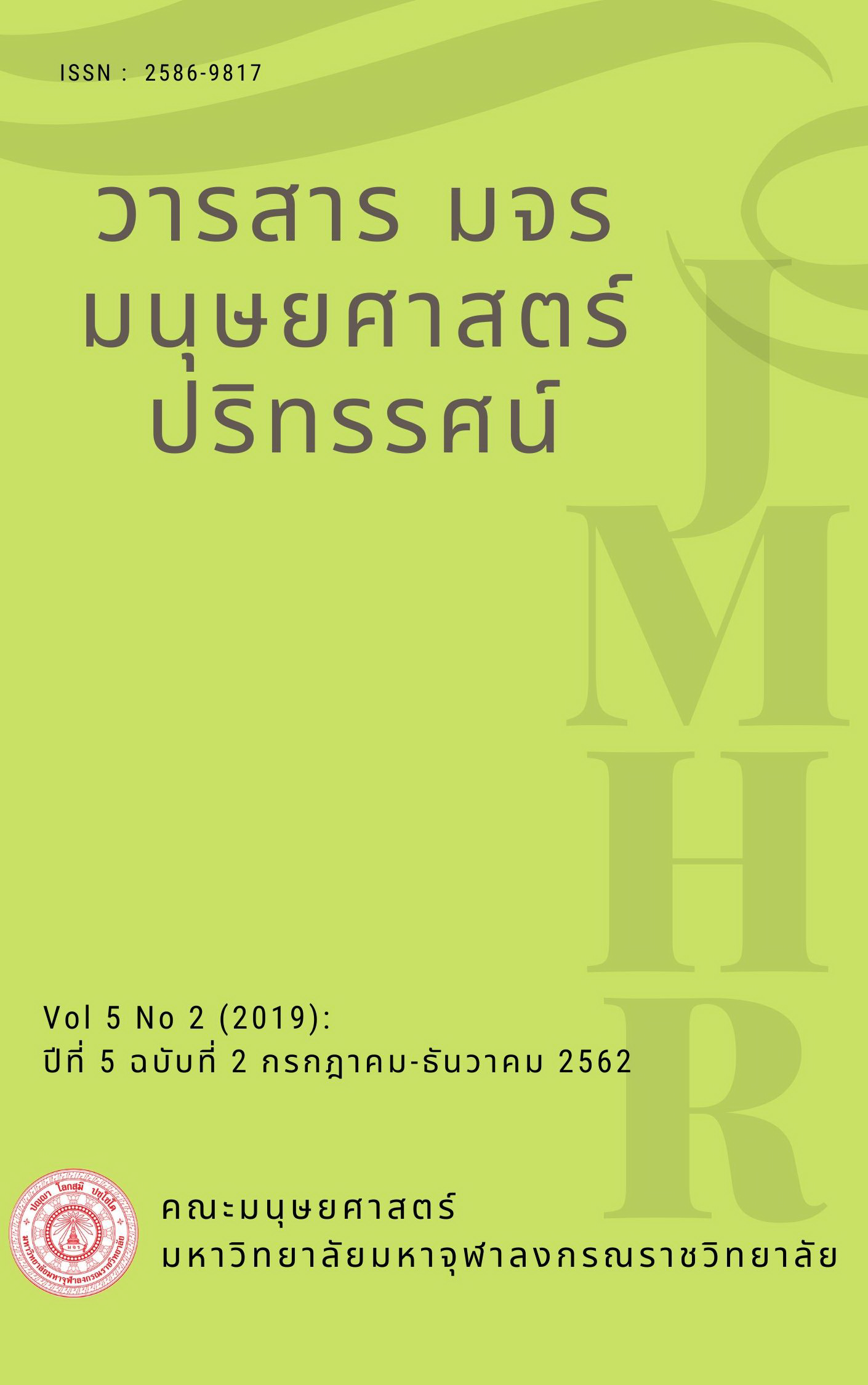NEW FARMER ภาวะผู้นำชาวนาไทยในยุคไทยแลนด์ 4.0
คำสำคัญ:
ภาวะผู้นำ, ชาวนาไทย, ไทยแลนด์ 4.0บทคัดย่อ
บทความวิชาการนี้ มีวัตถุประสงค์ 4 ประการ คือ 1) เพื่อศึกษาแนวคิดเกี่ยวกับนโยบายไทยแลนด์ 4.0 2) เพื่อศึกษาข้อเท็จจริงเกี่ยวกับข้าวและชาวนาไทยในปัจจุบัน 3) เพื่อศึกษาและสังเคราะห์แนวคิด ทฤษฎี ภาวะผู้นำ และ 4) เพื่อเสนอรูปแบบภาวะผู้นำชาวนาไทยในยุคไทยแลนด์ 4.0 โดยจากการวิเคราะห์และสังเคราะห์ สามารถสรุปได้ ดังนี้
- นโยบายไทยแลนด์ 4.0 เป็นวิสัยทัศน์เชิงนโยบายการพัฒนาเศรษฐกิจของประเทศไทยภายใต้การนำของคณะรัฐบาลชุดปัจจุบันที่เข้ามาบริหารประเทศบนวิสัยทัศน์ “มั่นคง มั่งคั่ง และยั่งยืน” โดยมีการส่งเสริมให้ปฏิบัติมาจนถึงปัจจุบัน
- ปัจจุบันประเทศไทยมิใช่ประเทศที่ส่งออกข้าวเป็นอันดับที่หนึ่งของโลก เนื่องด้วยสาเหตุหลากหลายประการ ส่วนหนึ่งเป็นเพราะชาวนาในประเทศไทยยังคงยึดติดกับวิธีการผลิตข้าวแบบเดิม นอกจากนั้นยังมีนวัตกรรมใหม่ที่ใช้ในการสร้างผลผลิตที่คุ้มค่าในจำนวนที่ไม่มาก
- ผู้นำที่ดีต้องมีคุณลักษณะ ดังนี้ ชอบเปลี่ยนแปลง ไม่ชอบเอาอย่างหรือลอกแบบใคร ชอบพัฒนา เน้นหรือมุ่งคนมีแรงดลบันดาลในความไว้วางใจ มองไกล ชอบริเริ่ม ชอบท้าทายสถานภาพเดิม เป็นตัวของตัวเอง ชอบทำในสิ่งที่ถูก เน้นผลงานและคน และสามารถทำงานเป็นทีมได้เป็นอย่างดี
- ประเทศไทยจะพัฒนาอย่าง“มั่นคง มั่งคั่ง และยั่งยืน” ได้นั้น ชาวนาไทยในปัจจุบันจะต้องมีคุณลักษณะภาวะผู้นำที่ดีตาม NEW FARMER โมเดล (NEW FARMER Model) ประกอบด้วย ภาวะผู้นำแบบ 9.9 ดำเนินกิจกรรมทาง “ธุรกิจ”ต่างๆ ผ่านสื่ออิเล็กทรอนิกส์ คิดค้นหาวิธีทำงานที่ง่ายและสิ้นเปลืองน้อยที่สุด มีความยุติธรรม มีทัศนะที่ดี มีความจริงจัง มีการจัดการที่ดี เน้นการทำงานให้มีประสิทธิภาพ ประสิทธิผล และมีการรายงานผลต่อผู้อื่น
เอกสารอ้างอิง
กีรติ กมลประเทืองกร และ สุวัฒสัน รักขันโท. (2560). ภาวะผู้นำตามหลักพระพุทธศาสนา. วารสาร มจร มนุษยศาสตร์ปริทรรศน์, 3(1), 126-133.
ติน ปรัชญพฤทธิ์. (2556). ศัพท์รัฐประศาสนศาสตร์. (พิมพ์ครั้งที่ 12). กรุงเทพมหานคร: สำนักพิมพ์แห่งจุฬาลงกรณ์มหาวิทยาลัย.
ประพันธ์ ผาสุกยืด. (2541). ทางเลือก ทางรอด. กรุงเทพมหานคร : เอเอาร์ อินฟอร์เมชั่น แอนด์.
ภาวิดา ธาราศรีสุทธิ. (2551). ภาวะผู้นำและจริยธรรมสำหรับผู้บริหารการศึกษา. (พิมพ์ครั้งที่ 4). กรุงเทพมหานคร: บริษัทสำนักพิมพ์ข้าวฟ่าง จำกัด.
เนตร์พัณณา ยาวิราช. (2556). ภาวะผู้นำและผู้นำเชิงกลยุทธ์. (พิมพ์ครั้งที่ 8). กรุงเทพมหานคร: บริษัท ทริปเพิ้ล กรุ๊ป จำกัด.
รังสรรค์ ประเสริฐศรี. (2551). ภาวะผู้นำ (Leadership). กรุงเทพมหานคร: บริษัท ธีระฟิล์ม และไซเท็คซ์ จำกัด.
สุวิทย์ เมษินทรีย์. (2560). เอกสารวิชาการ ประเทศไทย 4.0 สำนักวิชาการ. กรุงเทพมหานคร : สำนักงานเลขาธิการสภาผู้แทนราษฎร.
“_________”. ข้าววิถีชีวิตของชาวนาไทย. สืบค้น 10 พฤศจิกายน 2559, จาก https://www.facebook.com/drsuvitpage/posts/1416691108637615
W.C. Bennis and B. Nanus. (1997). Leader : Strategies for Teachers. New York : Harper & Row.






